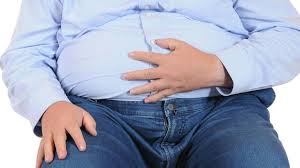Self destructive addiction and obesity

Self destructive addiction and obesity can be installed in the life of children without them knowing the consequences ahead.
Self destructive addiction and obesity: Turning to food to cope with low self-worth
Addiction is a dependence on a substance that the affected individual feels powerless to stop. Millions around the world have addictions problems, and food addiction is among one of the most common. From the expert’s desk at AWAREmed health and wellness resource center under the able leadership of doctor Dalal Akoury MD, research has over the years established that nearly 80% of gastric bypass pre-surgical patients suffer from food addiction. These studies, along with those of other investigators, have also found that the behavioral biochemical causes and effects underlying food addiction are nearly identical to those of other self-destructive addictions. One of the most common behavioral characteristics of individuals suffering from self-destructive addictions is a feeling of not being good enough. Feelings of low self-worth may cause a poor self-image, low self-esteem, depression, anxiety, a need to overachieve and an intense and chronic fear of failure.
Professionals who study addictions believe that society contributes to the development of addictions by establishing unreasonable or unreachable criteria for worthiness. The “addict” not only has negative feelings regarding self but also has failed to develop appropriate stress coping strategies. Instead of confronting life stressors directly or finding healthier ways to manage emotions such as through exercise, journaling, relaxation, spiritual care, therapy etc., the “addict” seeks to avoid unpleasant feelings by eating, drinking alcohol, smoking, using drugs, gambling and various other ways of escaping from reality.
One collaborative study found that more than 90% of pre-surgical morbidly obese patients use avoidance stress coping behavior to handle emotions, seeking comfort from negative feelings and stressful situations through the use and sometimes the abuse of food. There are strong associations between avoidance coping behavior, food addiction and lack of control over eating. With most food addicts feeling that they have no control over their addiction in spite of having complete knowledge of its negative social and health consequences. They recognize the adverse effects addiction has on friends, family, and self, but feel powerless over such behavior. This generates feelings of guilt and remorse thereby worsening the addictions and setting in motion a vicious cycle of avoidance and abuse.
Self destructive addiction and obesity: The body’s stress response
When individuals are confronted with stressful situations, specific hormones are produced, which help the body to cope with the situation. One of the body’s stress response pathways, known as the limbic-hypothalamic-pituitary-adrenal (LHPA) axis, generates a series of brain hormones that eventually lead to the production of cortisol by the adrenal gland. Cortisol helps to make available more sugar to the brain and other parts of the body to help cope with the stressful event. And remember that elevated cortisol levels on an ongoing basis are not only harmful to health but also harmful to mood. It can cause depression, affects mood by interfering with the actions of one of the brain’s major messengers, serotonin. Serotonin defects cause depression and anxiety. Many drug addicts and obese individuals suffer from depression and anxiety. Finally, all these addictions and weight related problems are never friendly for your health. Nonetheless, we have good news for you that doctor Akoury and her team of experts at AWAREmed health center are experienced professionals whose treatment focuses on personalized medicine through healthy lifestyle choices that deal with primary prevention and underlying causes instead of patching up symptoms making them the best to address all your addiction and weight-related concerns.
Self destructive addiction and obesity: Turning to food to cope with low self-worth
http://www.integrativeaddictionconference.com/wp-admin









